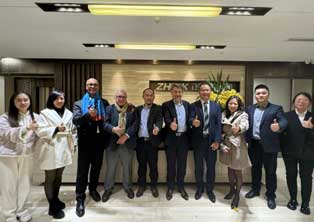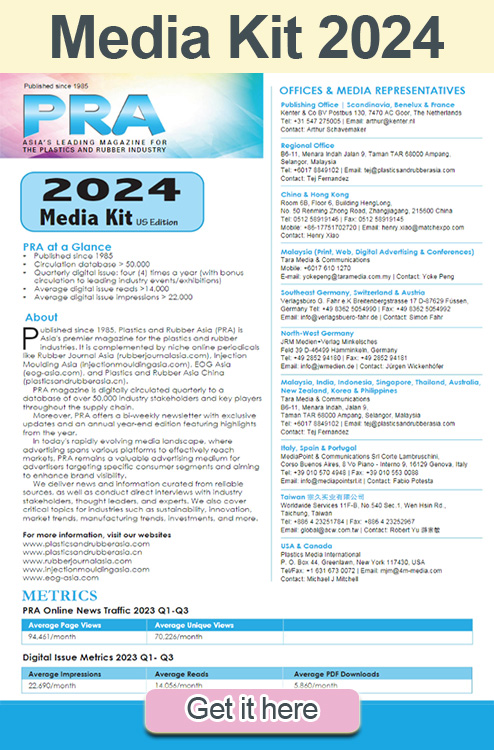Green tie-ups: Technip acquires Shell technology to accelerate bio-polyester production; Carbios/Zhink to build PET biorecycling facility in China

Technology firm Technip Energies and Shell Catalysts & Technologies have announced a technology transfer agreement which accelerates the commercialisation of Technip Energies’ Bio-2-Glycols technology for bio-based Mono Ethylene Glycol (MEG) production from glucose.
MEG is traditionally produced using fossil-based feedstock to make various types of polyesters for packaging materials, such as plastic bottles, and in clothing apparel. With this acquisition, Technip Energies intends to offer a bio-based polyester solution by replacing fossil-based feedstock.
By using a bio-sourced monomer, the Bio-2-Glycols technology allows for polyesters to be produced with lower carbon footprints and less environmental impact.
This technology transfer agreement allows to combine Shell’s R&D results with Technip Energies’ bio-MEG technology, to offer a more efficient, bio-based MEG technology to the market. The new combined technology will be commercialised under the Bio-2-Glycols trademark.

In other news, biotech firm Carbios and Zhink Group, specialising in two global industries, PET and textiles, have tied up to build a biorecycling plant in China using Carbios’ enzymatic depolymerisation technology and for Zhink to increase its rPET capacity.
The partners will build a plant with a processing capacity of 50 kiltonnes/year of prepared PET waste and would contribute to accelerating a circular economy for plastic and textiles. China, as the leading producer of PET in the world, is a key market for Carbios, and this agreement would establish a presence in this dominant market, they add.
With 67 million tonnes/year of PET produced, representing 61% of global production, China is the world's largest PET producer. With regional and global demand for recycled PET growing, China also has the potential to take the lead in recycled PET (r-PET) production. In 2021, 58% of the world’s r-PET was consumed in Asia (with 38% in China) underscoring this region’s importance both as a major producer and consumer.
Furthermore, China is a key transformer of PET into resins and fibres used in numerous applications in the packaging and textile industries. Most notably, China is the primary country for transforming PET into fibre, representing 78% of all PET fibre transformation in the world3.
Sustainability and the “dual carbon” policies are considered as main drivers for the Chinese PET recycling industry.
For Zhink, the strategic focus is on the development of two global industries, PET and textiles, and to be a leader with sustainable competitiveness. Zhink is a major actor within the PET market with a production of 3 million tonnes/year of PET, serving domestic and global markets.
Carbios has developed a enzymatic depolymerisation technology that enables efficient and solvent-free recycling of PET plastic and textile waste into virgin-like products.
The initial agreement between the two groups would allow Zhink to increase its recycled PET capacities and meet its sustainable competitiveness objectives by offering r-PET from enzymatic recycling: a circular recycling solution that can process all types of PET waste including hard-to-recycle waste (such as opaque and coloured bottles, multilayer food trays and textile waste) while reducing CO2 emissions by 57%5 compared with virgin PET production.
For Carbios, this agreement marks a significant step in the deployment of its technology worldwide and roll-out of its licensing model to achieve its ambition to become a leading technology provider in the recycling of PET by 2035. This Asia-based plant under license by Zhink would come in addition to the world’s first industrial-scale enzymatic PET recycling plant which is currently under construction in Longlaville, France.
The opening of official discussions with Zhink for a licensing agreement marks an important milestone in Carbios’ market entry into China. With China considered as a major market, all of Carbios’ families of patents own one or more titles in this country.
For its PET biorecycling technology, Carbios currently has 28 titles in force in China covering both the industrial process and the enzymes used (including variants that will be used in the industrial process).
Subscribe to Get the Latest Updates from IMA Please click here
©2024 Injection Moulding Asia. All rights reserved.















